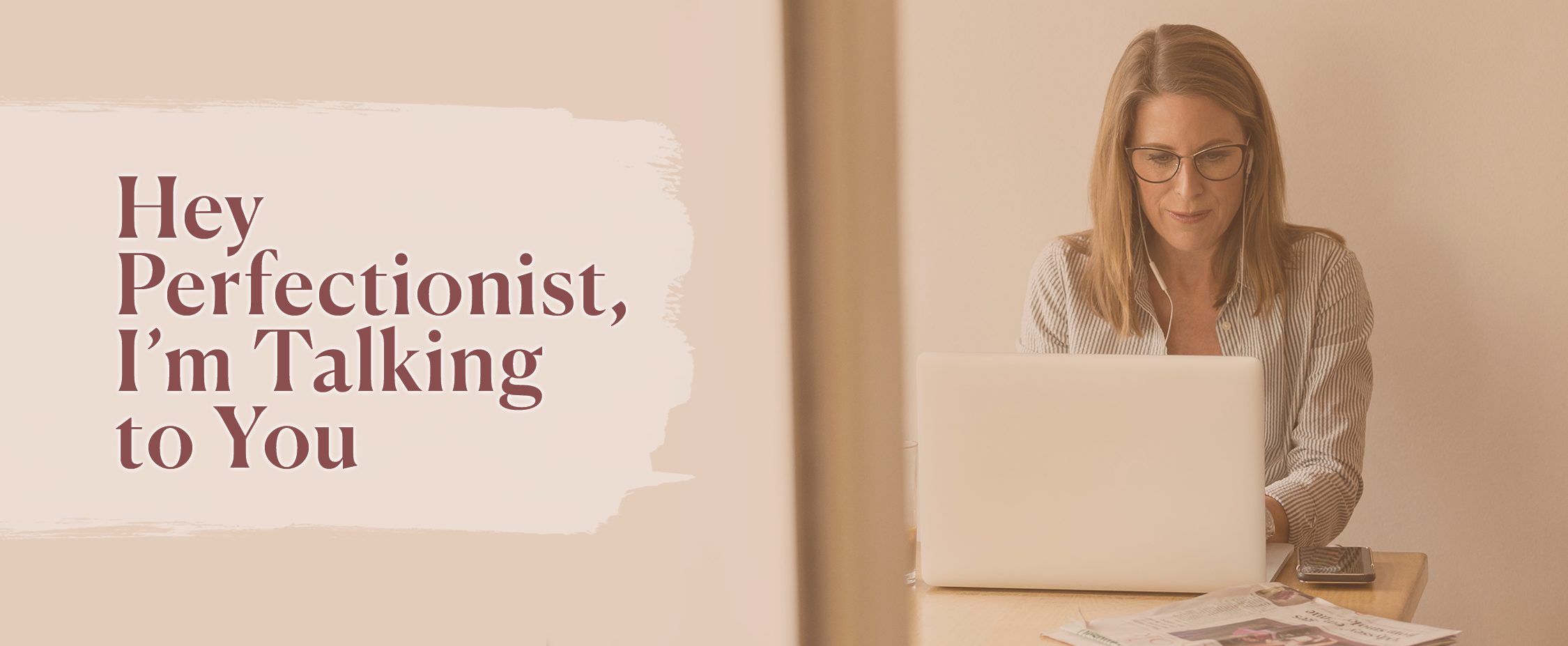This article first appeared on Forbes
I’m in my home office, about to go on a coaching call with a client. From across the paper-thin walls, I can hear two of my daughters screaming at each other over something minor. I can see myself losing my composure, and grabbing my computer, I hurry to my bathroom to take my call from the only room in the house that feels like a refuge these days.
Pre-COVID, I may have shared this episode with my husband, and perhaps a best friend. Never would I have put it up in a blog for the world to read. Vulnerability has become far easier now that the world has given us permission to talk about the literal acrobatics we go through every day to maintain a semblance of normalcy while working from home.
But while WFH may have made it cute to have a toddler playing lego in the background during a work meeting, I don’t think it has made the lives of many perfectionists any easier. As a coach, and a recovering perfectionist, I know that the expectations we place on ourselves come from an inner self that’s impossible to appease or challenge.
I see clients burning themselves out to maintain their previous levels of productivity despite children, housework, arguments and fear in the midst. “I feel slower”, “I don’t have the same energy” they complain, as though something is wrong with them. Others are trying to be supermoms in the role of teacher, cook, playdate and nurturer, despite their own anxieties and struggles.
I can empathize, now that my four adolescent children are all living at home again. Being central to their lives was a role I’d outgrown a few years ago. Now I’m back in it, and struggling to live up to the bar I’ve set myself.
Take last weekend for example. I was in the kitchen getting my breakfast ready while they were already eating in the eating area right outside. They were laughing about something from their childhood, and I would throw in a comment here and there from the kitchen.
Soon enough, I realized that my comments were falling on deaf ears. I was inconsequential to their conversation. I’d noticed it multiple times before as well. I’d also noticed that my “advice” was generally met with silence and raised eyebrows, or arguments and rolling eyes. Alone in the kitchen, I suddenly felt my insides shrink. Before I knew it, I was caught in a frenzy of emotions; anger, sadness, a strange longing for their childhood, when mommy’s words were prized over all else, and her hugs could heal all wounds.
I was about to say something I would’ve later regretted, but thankfully made my way to my favorite refuge (the bathroom). As the tears flowed like a wide-open tap, I tried to make sense of why I felt the way I did. Had I felt like a boring old woman who was no longer needed? Were my feelings of “being essential” still dependent on my role as a mother? And what was wrong in being a mother who was actually old or boring?
The truth is, we create ideal visions of how we should be in the roles we depend on to feel good about ourselves. For most of us, our work and relationships are two of them, but there are often more — appearance, spirituality, morality. And we spend a lifetime running so urgently after this ideal self.
Here’s what I’ve come to realize. Our pursuit is less about dreams that draw us forward, and more about fears that push us away. We’re actually running away from our broken and fallible selves. We wear masks of productivity, pleasing, performance, control, competition, and a hundred others to hide our perceived reality from others — and sometimes from our own selves.
No wonder it can feel like we’re constantly coming up short. When the hole is in our hearts, and approval is our yardstick, we can never get enough, have enough, be enough.
The current crisis has forced many of us to accept children roaming in their pjs during work calls, or live with the mini horror of seeing our grey hairs and un-botoxed faces reflected back to us in the mirror and on Zoom calls. We may have begun to widen our perspective and see our challenges as inconsequential, given thousands are grieving and millions struggling around the world.
But here’s my question. When all of this over, will we get back in the chase? Will we return to seeking acceptance from a world that rewards values that aren’t necessarily aligned with our own? Or will we have done our inner homework, so we emerge from confinement valuing who we are and honoring the struggle toward how we truly want to live?
Whether you’ve temporarily come to terms with your limitations, or are burning yourself out to meet your unreasonable expectations (and beating down on yourself for failing to do so), think of this as a time when we’ve collectively been sent home to do our essential inner work. You’ve likely long known that perfection is killing you. There’s no better time than right now to work on it when the world has given you permission to be less than perfect.
Because sooner or later, confinement will be over. The world will have less patience with your human imperfections. And unless you’ve fully embraced them, you’ll grab back your masks and start running again.
In her moving poem A Brave and Startling Truth, Maya Angelou writes, “when we come to it…we learn that we are neither devils nor divines”. Let’s craft our ideal selves upon the loving acceptance of our imperfect glory. And then spend a lifetime working boldly toward it.


